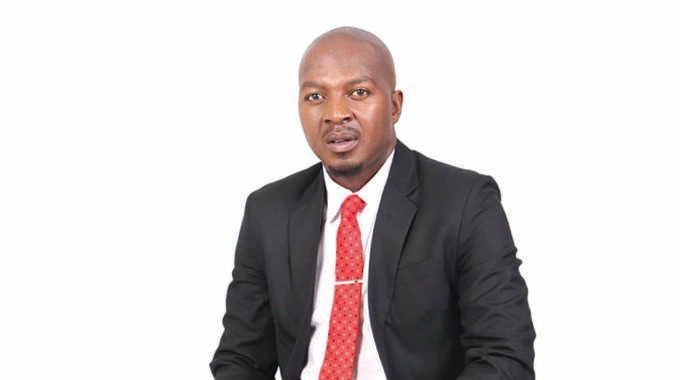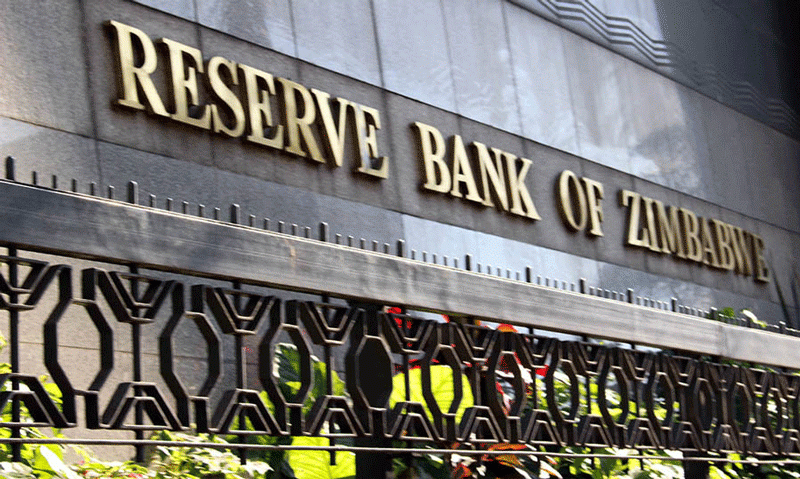
THE Zimbabwe National Road Administration (Zinara) is a corporate body that was established in terms of the Road Act (Chapter 13:18) and is focused on spearheading the fixing of the country’s roads, most of which are in a terrible state, increasing the risks of carnage on the roads. Business reporter Freeman Makopa (FM) caught up with Zinara chairperson George Manyaya (GM, pictured) to discuss its targets and mandate among other things. Below are excerpts:
FM: Zinara has disbursed a total of ZW$9,5 billion (US$80 million) to local authorities in 2021 for the rehabilitation of the roads which have ironically remained in a serious state of disrepair. What seems to be the issue?
GM: Zinara disbursed ZW$9,5 billion to all road authorities in 2021 for road maintenance. Let me hasten to highlight that we are a road fund manager, and our mandate is to fix road user charges; collect such charges or any other revenue of the Road Fund and allocate and disburse such funds to road authorities in line with the Roads Act [Chapter 13:18], the Public Finance and Management Act, and as per other policy and procedure frameworks. All entities falling under these road authority groups are thereafter responsible for the national rehabilitation of our road networks.
Our role as a fund administrator is limited to availing funding for the road authorities. After funding is received by the respective road authorities we do follow up on the impact of the disbursed public funds by monitoring and evaluating their use, hence our mandate to audit. There has been some work that was done by various road authorities last year as can be testified by the road rehabilitation works around the country under the Emergency Road Rehabilitation Programme (ERRP). It is now our duty as stakeholders to bring to book those that have not been able to fully utilise the funding and assess the reasons why.
FM: Tell us how the Emergency Road Rehabilitation Programme (ERRP) came into place
GM: Our roads have not been in a good state and the ERRP is in line with the ethos of the National Development Strategy (NDS1) whose key aspirations include infrastructural development as a key enabler in attaining Vision 2030. The new dispensation through His Excellency, President E.D (Emmerson Dambudzo) Mnangagwa in February 2021 declared all roads to be in a state of national disaster, following the heavy rains that we received during the 2020-2021 rainy season. To this end, the Emergency Rehabilitation Road Programme (ERRP) was launched to urgently focus on improving our road infrastructure.
Under the ERRP, Zinara has the mandate to mobilise the financing of the emergency road rehabilitation works. Our Ministry of Transport and Infrastructural Development, through the minister, Honorable Felix Mhona, has been spearheading the fulfilment of this national cause and this is why you see a lot of work being done in all corners of the country.
Fact file: George Manyaya- Is a self-driven and dynamic young business executive;
- A renowned and respected public sector actor and seasoned corporate governance, marketing and public relations practitioner;
- Has vast experience at both executive and board levels in information communication technology, media, Infrastructural development, mining, Energy, sports, aviation, banking tourism sectors and international forums. He also has experience in the United Nations sphere after having worked for the International Organisation for Migration;
- Became the youngest chairperson of the Zinara board and has already commenced spearheading the rebranding and transformation drive. He made history by becoming the youngest ever chairperson on the road administration;
- Is the group spokesperson of the national power utility Zesa Holdings;
- Former vice-chairperson of the Airports Company of Zimbabwe board;
- Was also a member of the Civil Aviation Authority of Zimbabwe board in 2013;
- Is a holder of a Doctorate in business Administration;
- Holds a Master of Science Degree in International Relations, Master of Commerce Degree in Strategic Management and Corporate Governance, a Bachelor of Commerce Honors Degree Business Management, a Diploma in Mass Communication and Journalism Studies and Certificate in Diplomacy, Protocol and Etiquette — Zimbabwe Institute of Diplomacy and a Certificate in Telecommunications Policy Regulation Management among other qualifications;
- Has been awarded various accolades for recognition of his outstanding work by the Institute of Public Relations Zimbabwe (IPRZ), Marketers Association of Zimbabwe (MAZ) and the Zimbabwe National Chamber of Commerce (ZNCC). Recently he was recognised and was included on the list of the 40 most influential young Zimbabweans under the age of 40 by the Institute of Corporate Directors Zimbabwe;
- Has represented the country in many assignments having been part of the Government’s Special envoy diplomatic delegation that was sent to deliver special messages to the Presidents of Rwanda, Guinea Conakry, Vanuatu and visited the European Union, Belgium in 2019;
- Was also a Member of the Zimbabwe Campaign team to the International Telecommunications Union (ITU), for the post of Director Telecommunication Development Bureau ITU, 2019-2022;
- Was a Member of the Zimbabwean delegation to the Kimberly Process Certification Scheme (KPCS) that was instrumental in diplomatically engaging member states globally leading to the certification of Zimbabwean diamonds. (2009-2013); and
- Was appointed the Chief Coordinator of the successful hosting of the UNWTO 2Oth General Assembly co-hosted by Zimbabwe and Zambia in 2013 and was appointed a Zimbabwean tourism brand ambassador for this General Assembly.
FM: You revealed that in March this year you would double the disbursements for this year to ZW$17 billion (US$120million). Have you already done that and is it being accounted for?
- Chamisa under fire over US$120K donation
- Mavhunga puts DeMbare into Chibuku quarterfinals
- Pension funds bet on Cabora Bassa oilfields
- Councils defy govt fire tender directive
Keep Reading
GM: The ZW$17 billion is a projected budget figure that is based on monthly collections Zinara makes as part of its revenue streams. The administration does not sit with ZW$17 billion in its coffers but is expecting to collect this amount over 12 months. The work plans of road authorities, which are reviewed every quarter, are also spread throughout the year thus ensuring that Zinara disbursements match the budgetary needs of the plans through its scheduled disbursements.
Ever since the announcement, there has been a lot of excitement and coordination between us and our stakeholders and a lot of processes have already commenced. We will indeed fulfill this commitment and in the spirit of transparency and disclosure we will communicate what we have disbursed and to whom.
FM: How much are you targeting to rake in this year from toll and licence fees?
GM: Targeted collections from all road user fees are expected to be over ZW$30 billion dollars (US$210 million). However, we know that there can be a mismatch between income collection patterns and the rate of road works required. As such, we have undertaken to initiate innovative steps, such as sourcing alternative funding. We have been having fruitful engagements thus far and our plans to increase budget capacity are at an advanced stage as we are arranging short-term funding facilities with some local financial institutions, which will be available for drawdown soon.
FM: What measures did you put in place to facilitate maintenance of the national road network given the dilapidated state of the roads across the country?
GM: Like I said earlier, the various road authorities across the country have compiled different programmes for their roads and will be submitting funding requests to Zinara throughout the year. Zinara’s mandate is to raise funds for disbursement to road authorities – we are not involved in the execution of the works, except when performing the monitoring and evaluation of the works done by the road authorities, and also when doing financial audits of the disbursements.
FM: Is the amount that you collect as Zinara tally with what is required for the roads and if not? What is your strategy?
GM: The collections are never enough for the needs, as they are based purely on current traffic volumes and road user fee levels. The collections are then allocated to the road authorities, and at this stage these annual collections do not meet all road repair needs across the country as the needs are much higher. Whilst there are options for raising additional funds, it is important to note that any additional capital raising strategy remains dependent on the capacity to repay which is determined by these same annual collections.
FM: Is Zinara exploring new ways of raising funds to complement traditional revenue sources for road programmes and if yes, what are they?
GM: Yes, Zinara is exploring opportunities for new income streams, over and above the existing ones. These will be published from time to time after due processes have been followed.
FM: What are the major challenges at Zinara?
GM: Rebranding an institution like Zinara is a challenge but we are happy to advise that the organisation is making progress. The challenging issues that we are focusing on are mainly resolving legacy issues, ensuring that Zinara charges tariffs that will balance the road maintenance needs whilst also remaining affordable to motorists. We have also focused on congestion at the tollgates and it is important to underline that a tollgate development plan has commenced, and better tollgates and systems will be rolled out before year end.
However, the rebranded Zinara will continue to practice transparency, accountability and disclosure. The funds we hold are public funds, belonging to the people of Zimbabwe and hence gone are the days when the nation was not aware of what has been disbursed and to whom.
FM: What are your objectives for 2022?
GM: Our objective this year is to improve tollgate infrastructure, capacitate road authorities through training programmes and to raise ZW$34 billion (US$240 million) to ensure that disbursements are sufficient for the current needs and distributed on time.
FM: How far are you with the upgrading of toll gates to tall plazas and how much do you require to achieving that?
GM: Our budget this year for tollgate upgrading is ZW$1,7 billion (US$12 million) and we are targeting to upgrade seven tollgates. The upgrade work is being conducted in collaboration with our parent ministry through the department of roads, and we are responsible for funding the projects. So far they have already started working on the Norton tollgate and a tender for the Shamva tollgate is now at the evaluation stage. Several other projects are earmarked to be commenced soon.
FM: Council at one time disclosed that the road network has outlived its lifespan and requires US$700 million, are you of the same view and if not tell us the correct position?
GM: The ministry of Transport is in a better position to shed more light on that and give direction on this policy issue.











